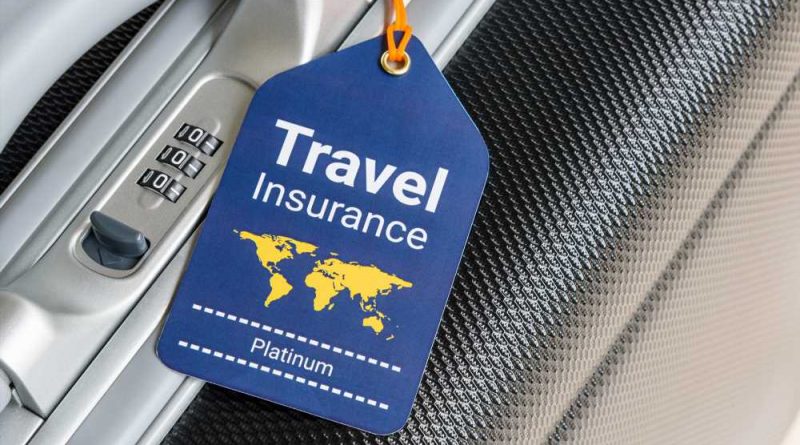Travel insurance market booms as clients seek more protection
As the threat of the delta variant looms large and borders tighten up across the globe, demand for travel insurance continues to rise.
According to travel insurance comparison site InsureMyTrip, the number of online queries for the term “travel insurance” hit their highest levels since March 2020 in mid-August, amid this summer’s Covid surge.
“With the delta variant being more prevalent and there being concerns around cancellations due to either Covid or potential border closures, insurance has definitely been top of mind for travelers,” said Meghan Walch, product manager for InsureMyTrip. “And at this point, people are a bit more educated and know what to ask and look for.”
According to Tiffany Layne, a luxury leisure advisor and founder of New York-based LaVon Travel & Lifestyle, many clients, including those who are fully vaccinated, have expressed concern about the level of coverage provided should they test positive for Covid.
“They definitely have questions around, ‘what happens if I test positive before I leave, or I test positive and can’t come back to the U.S.?'” explained Layne.
In response, travel insurance providers have ramped up their Covid-focused protections on several fronts, with many now providing far more comprehensive trip coverage around cancellations caused by a Covid diagnosis, quarantine and more.
- Related: Trade group creates travel insurance resource
Travelex, for example, now categorizes Covid as a covered sickness in its standard travel insurance policies, according to Shannon Lofdahl, president of Travelex Insurance Services and CEO of Cover-More Group.
“You don’t have to add coverage to be protected if you contract Covid,” said Lofdahl. “And we also beefed up our protection around quarantine and additional accommodations, because we found that people would be stranded and just not have those extra dollars. And that is all part of the base offer.”
Likewise, in March of this year, Allianz formalized its addition of epidemic coverage to its travel insurance products.
“We had to reevaluate the landscape and deliver products that made sense,” said Richard Aquino, vice president and head of sales at Allianz Partners. “If you get Covid, you can cancel because of Covid. If you become ill on a trip because you have Covid, you’re covered there, and we now cover quarantine and denied boarding. There are really no ‘gotchas’ there.”
Allianz has also sought to take stress out of insurance shopping, letting travelers “kick the tires” on a policy for 15 days, allowing them time to pore over the fine print and providing a refund if they’re not satisfied with their purchase. Additionally, the company has made an accommodation for travelers needing to shift travel dates, with a plan’s effective date now able to cover a new or rescheduled trip made within 770 days from original purchase as well as a refund accommodation should a trip be canceled by a travel supplier.
“We’re doing a lot of things to help our travel advisor partners out, because it is a really crazy time in the marketplace,” Aquino said.
For the most part, the ramped up Covid policies have been well received by advisors and their clients.
“The companies that we work with directly, all of them have provisions that will cover travelers if they test positive before departing on their trip and supply coverage if they [test positive while traveling and] need to quarantine,” confirmed Laura Heidt, insurance desk manager for Brownell Travel.
That said, Heidt acknowledged that quarantine-related insurance payouts could fall short for some clients at the luxury tier, with most trip delay benefits covering approximately $2,000 per person per delay at a maximum. For a 10-day quarantine, that boils down to $200 a day per person for quarantine expenses.
For travelers concerned that their policy’s trip delay benefit might not cover the level of comfort they prefer, Heidt suggested a membership with Covac Global, a pandemic evacuation and repatriation program, as an add-on solution. Although pricing can vary, Heidt said the average cost for a 15-day Covac Global membership typically starts at around $675 per person.
“Covac Global really addresses this whole new need around having to quarantine and wanting to come back home to do so, but not having to be hospitalized,” said Heidt.
Advisors have also reported strong interest in Cancel For Any Reason (CFAR) policies, which, in many markets, can be added as an upgrade to an existing insurance plan.
According to InsureMyTrip’s Walch, a standard, comprehensive travel insurance plan can set a traveler back between 4% to 10% of the total trip cost. Adding CFAR coverage onto the policy typically costs an additional 40% to 60% of that 4% to 10% initial insurance spend.
Although most CFAR policies do truly allow travelers to cancel a trip for any reason, including cold feet, cancellations must generally be made 48 hours in advance of departure, said Walch, with most CFAR plans only reimbursing between 50% to 75% of the total trip cost, depending on the plan purchased.
Still, it remains an in-demand insurance add-on for those seeking the most comprehensive level of cancellation coverage possible.
“Prior to the pandemic, it wasn’t something that a lot of people purchased,” said Walch. “But since the start of the pandemic, because CFAR does really offer the flexibility to be able to cancel on the traveler’s terms, it has really become very popular.”
Source: Read Full Article






